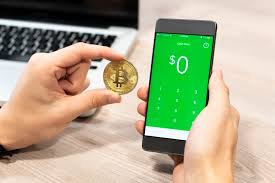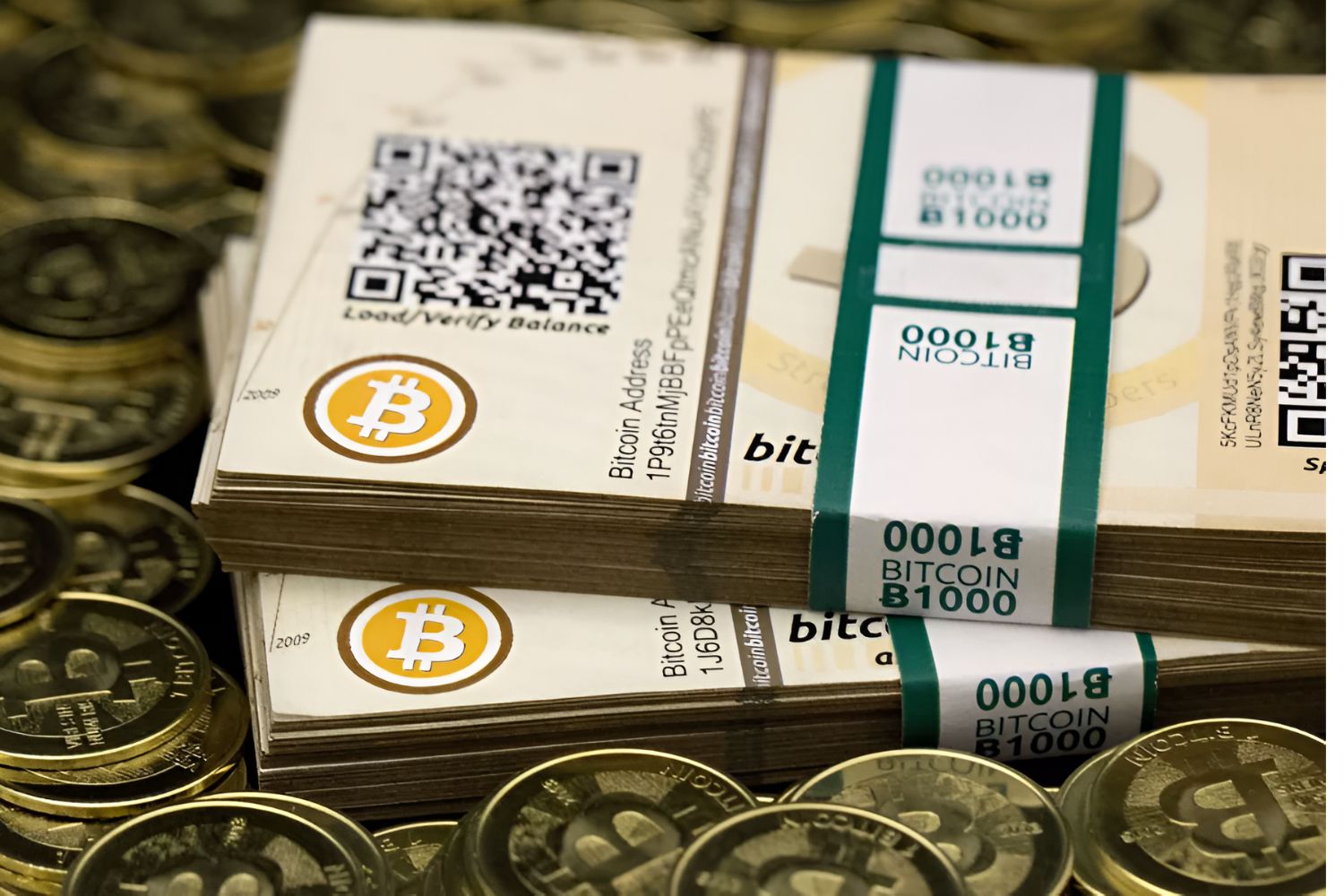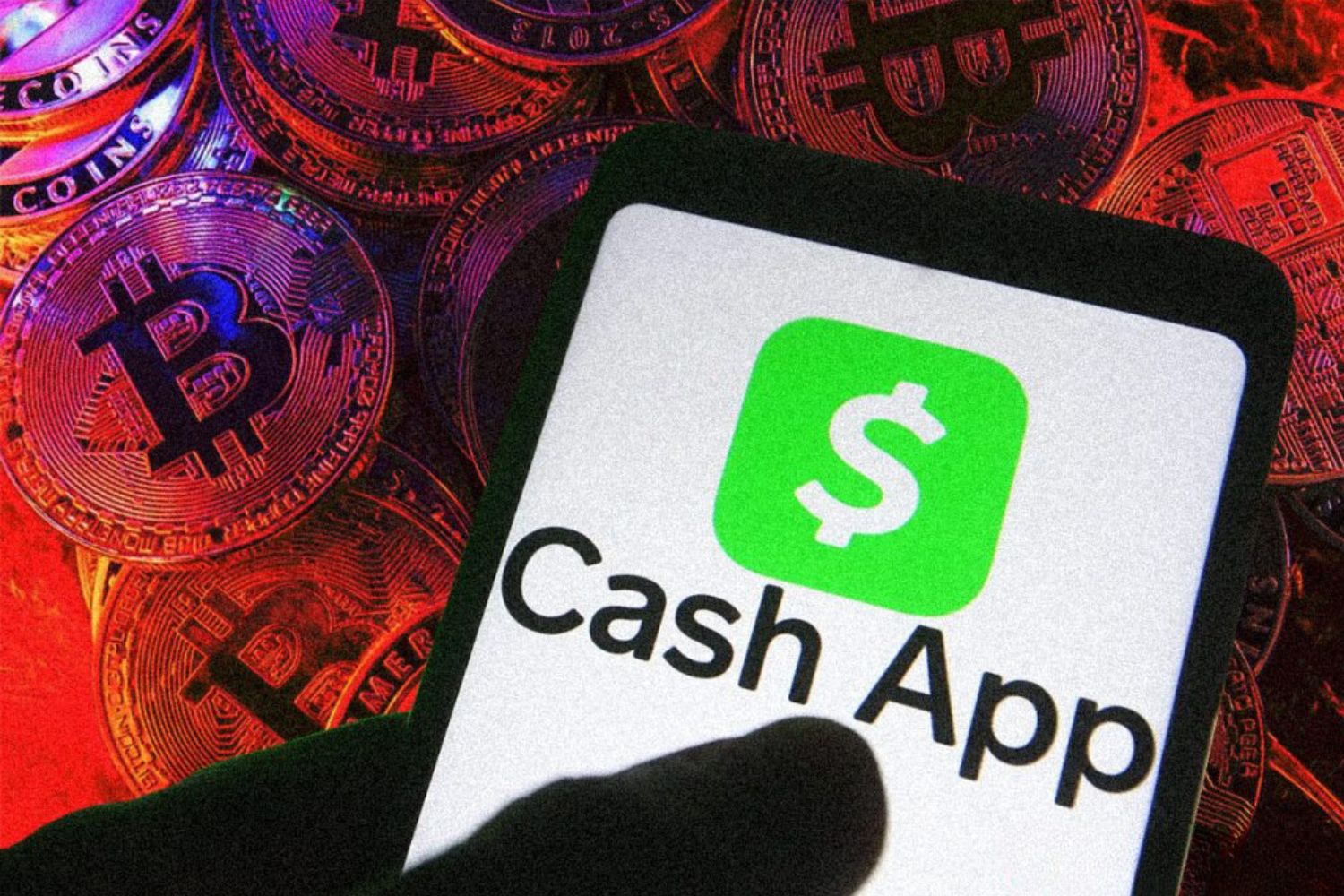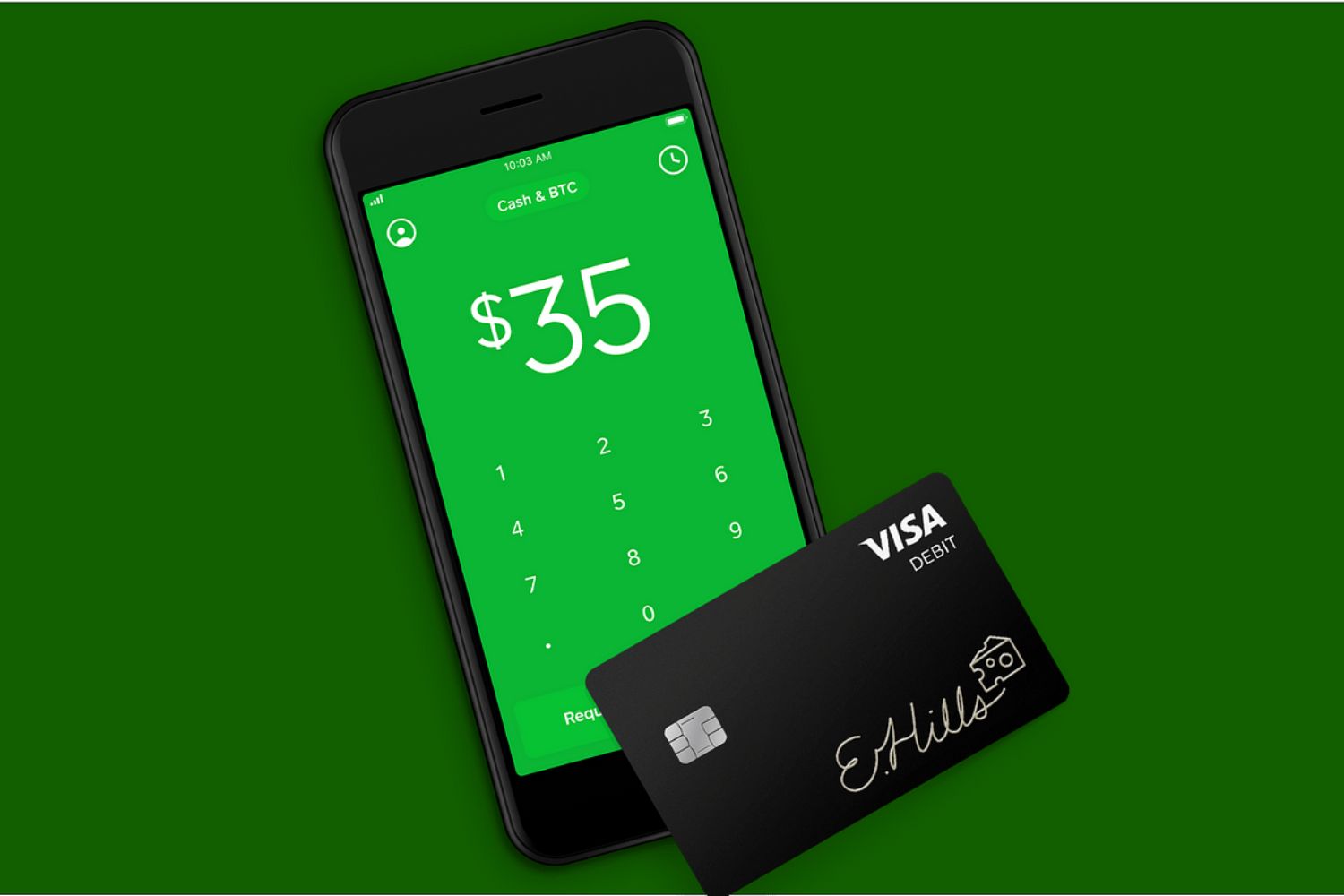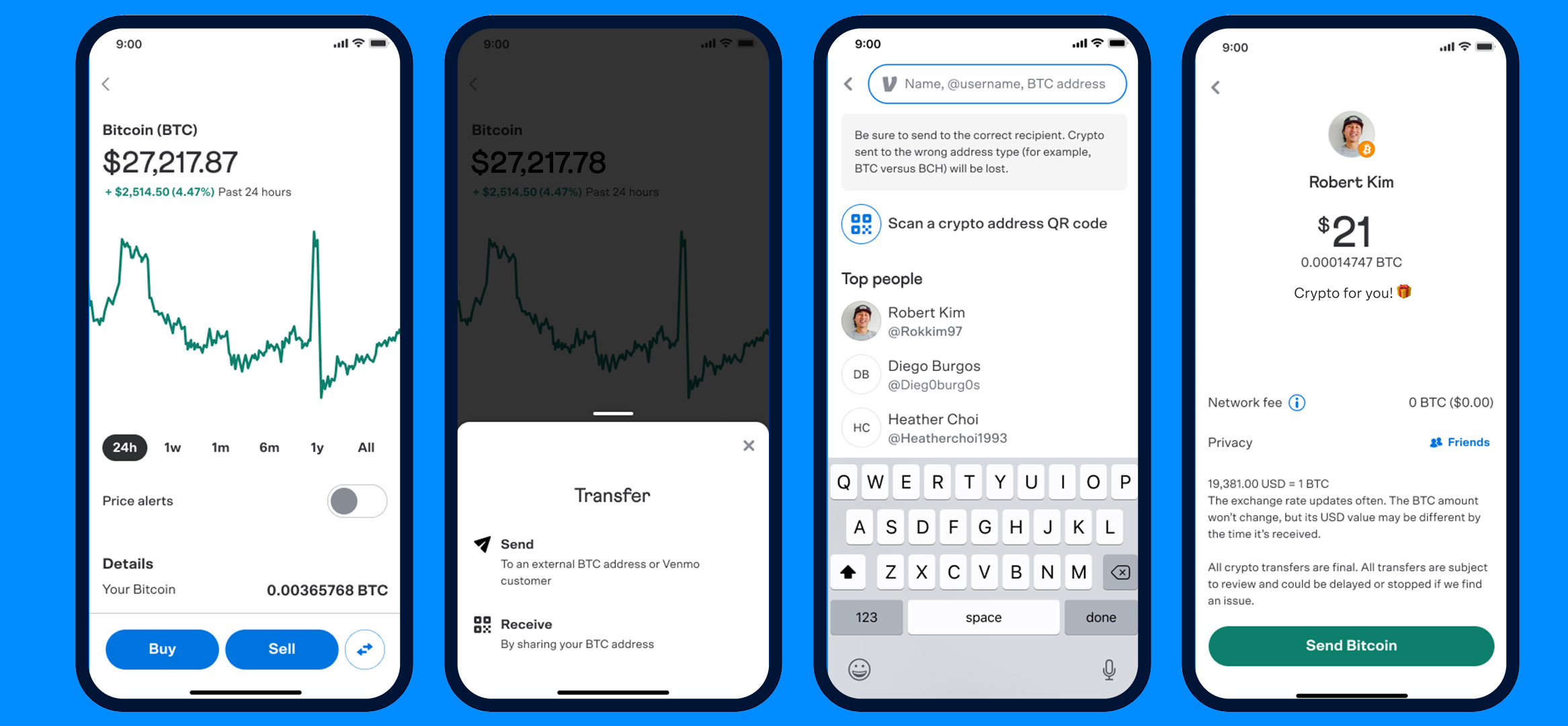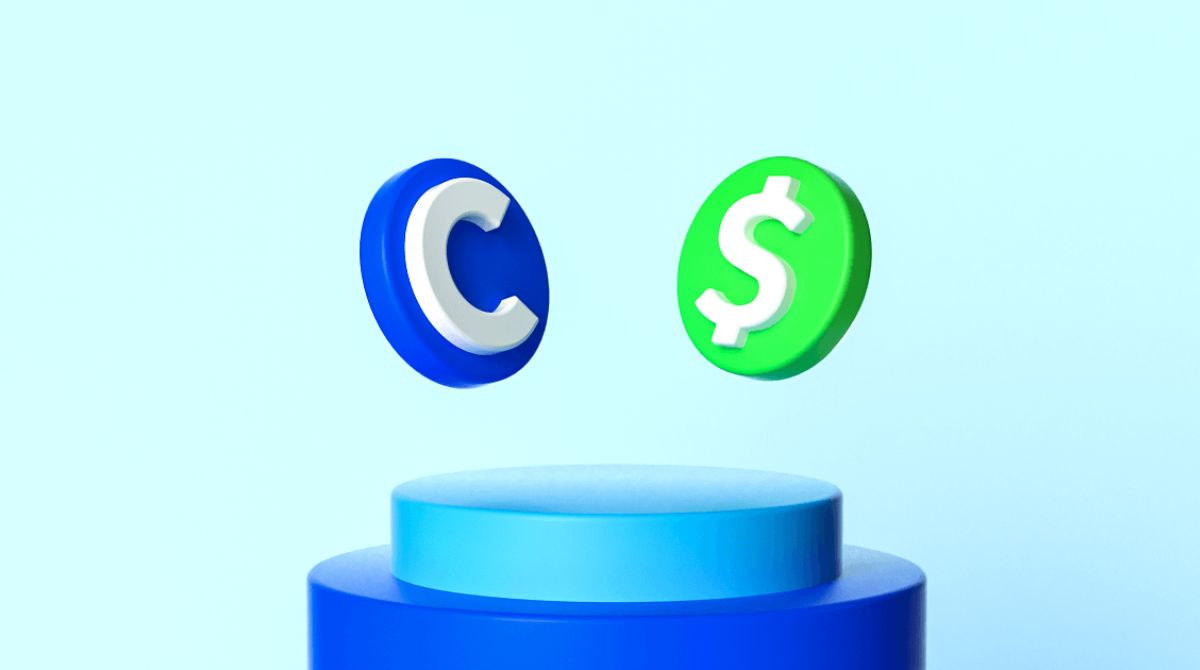Introduction
Welcome to the world of Cash App, where digital transactions are made easy and convenient. In this article, we will explore Bitcoin’s role in Cash App and how it has revolutionized the way we handle money in the digital age.
Cash App is a popular mobile payment service developed by Square, Inc. It allows users to send, receive, and store money digitally. With over 36 million active users globally, Cash App has become a go-to platform for seamless peer-to-peer transfers, making it a household name in the finance industry.
Bitcoin, on the other hand, is a decentralized digital currency that operates on a technology called blockchain. It was created in 2009 by an anonymous person or group known as Satoshi Nakamoto. Bitcoin offers a secure and transparent method of transferring value, free from the control of any central authority or government.
With its rising popularity and widespread adoption, Cash App integrated Bitcoin into its platform, allowing users to buy, sell, send, and receive Bitcoin seamlessly alongside traditional fiat currencies. This integration opened up new possibilities for Cash App users, making Bitcoin a key component of the app’s functionality.
In the following sections, we will delve deeper into how Cash App works and explore the various features and benefits of using Bitcoin within the app. Whether you’re a seasoned Bitcoin enthusiast or simply curious about how digital currencies operate, this article will provide you with valuable insights into Bitcoin’s role in Cash App.
What is Cash App?
Cash App is a mobile payment service that allows users to send and receive money digitally with ease. Developed by Square, Inc., Cash App has gained popularity for its simplicity and convenience in handling financial transactions.
One of the main advantages of Cash App is its seamless peer-to-peer transfer feature. Users can easily send money to friends, family, or even merchants by simply entering the recipient’s username, email address, or phone number. This eliminates the need for traditional payment methods such as checks or physical cash.
Besides person-to-person transfers, Cash App also offers a range of additional features. Users can link their bank accounts or debit cards to Cash App, making it possible to load funds into the app directly from their personal accounts. Cash App also provides a physical debit card, known as the Cash Card, that users can use to make purchases online or in-person.
Additionally, Cash App users can invest in stocks and buy Bitcoin directly within the app. This integration of investment opportunities further expands Cash App’s functionality and provides users with additional avenues to grow their wealth.
Furthermore, Cash App offers its users the option to create a unique Cash App username, also known as a $Cashtag. Users can share this $Cashtag with others, allowing them to easily send money to the user’s Cash App account without the need for bank details.
Security is a top priority for Cash App. The app utilizes encryption and other security measures to protect user information and transactions. Cash App also provides users with the ability to enable additional security features like two-factor authentication, ensuring that their funds remain safe and secure.
Overall, Cash App has rapidly gained popularity due to its user-friendly interface, quick transactions, and additional features. With the integration of Bitcoin and other investment opportunities, Cash App offers a comprehensive platform for digital payments and financial management.
How does Cash App work?
Cash App simplifies the process of transferring money digitally by providing a user-friendly and intuitive platform. Here’s a breakdown of how Cash App works:
- Sign Up: To get started with Cash App, users need to download the app from the App Store or Google Play Store and create an account. The sign-up process involves providing basic personal information, such as a valid email address and phone number.
- Add Payment Method: After signing up, users have the option to link their bank account or debit card to Cash App. This enables them to add funds to their Cash App balance, which can then be used for various transactions within the app.
- Sending Money: To send money to another Cash App user, simply enter the recipient’s $Cashtag, username, phone number, or email address. Enter the desired amount and tap the “Pay” button. The recipient will receive a notification and the funds will be instantly transferred from your Cash App balance to theirs.
- Receiving Money: To receive money on Cash App, share your unique $Cashtag or provide your Cash App username, email address, or phone number to the sender. Once they initiate the transfer, the funds will be immediately credited to your Cash App balance.
- P2P Transfers: Cash App allows for seamless peer-to-peer transfers, making it easy to split bills with friends or reimburse family members. Users can request money from others, and once approved, the requested amount will be deducted from the sender’s Cash App balance and added to the recipient’s.
- Investments: Cash App offers users the opportunity to invest in stocks and buy Bitcoin directly within the app. By linking a bank account or debit card, users can allocate funds to investments and monitor their portfolio performance in real-time.
- Cash Card: Cash App provides users with the option to order a physical debit card, known as the Cash Card. This card can be used to make purchases online and in brick-and-mortar stores where major card networks are accepted. The Cash Card is linked to the user’s Cash App balance and offers Cash Boosts, which provide discounts at select merchants.
Security is a top priority for Cash App. The app uses encryption and secure servers to protect user data and financial transactions. Users can enable additional security features like fingerprint or face recognition authentication, as well as a unique personal identification number (PIN) for added protection.
With its user-friendly interface and seamless transactions, Cash App has become a popular choice for individuals looking for a convenient and efficient way to handle their digital payments.
What is Bitcoin?
Bitcoin is a decentralized digital currency that operates on a technology called blockchain. It was created in 2009 by an anonymous person or group known as Satoshi Nakamoto and has since gained significant popularity and recognition in the financial world.
Unlike traditional currencies such as the US dollar or the Euro, Bitcoin does not have a central authority or government controlling its distribution and regulation. Instead, it uses a peer-to-peer network of computers, known as nodes, to validate and verify transactions.
Bitcoin’s decentralization and transparency are made possible by the blockchain, a distributed ledger that records every transaction made with the cryptocurrency. This ledger is maintained and updated by the network of nodes, ensuring the integrity and security of the Bitcoin network.
One of the key features of Bitcoin is its limited supply. There will only ever be 21 million bitcoins in existence. This scarcity is built into the code of the cryptocurrency and creates a sense of value and digital scarcity, making Bitcoin a finite and potentially valuable asset.
Bitcoin can be stored in a digital wallet, which can be accessed through various platforms such as desktop applications, mobile apps, or hardware devices. These wallets provide users with a unique address, which is used to send and receive Bitcoin.
Bitcoin transactions are pseudonymous, meaning that the identities of the users involved in a transaction are not directly linked to their Bitcoin addresses. However, all transactions are recorded on the blockchain, and it is possible to track and analyze the flow of Bitcoin, leading to concerns about privacy.
Bitcoin has gained attention as a potential investment asset due to its volatility and potential for high returns. It has also attracted interest as a means of transferring value internationally, bypassing traditional banking systems and reducing transaction fees.
As Bitcoin continues to evolve, various use cases and industries are exploring its potential. From retail businesses accepting Bitcoin as a form of payment to financial institutions investing in Bitcoin, the digital currency is making its mark on the global financial landscape.
Overall, Bitcoin represents a new paradigm in the world of finance, offering a decentralized and transparent alternative to traditional currencies. Its unique properties and growing adoption make it a fascinating and disruptive force in the digital age.
Bitcoin’s Role in Cash App
Bitcoin plays a significant role within the Cash App ecosystem, offering users additional functionality and investment opportunities. Cash App’s integration of Bitcoin has expanded its services beyond traditional fiat currencies, making it a comprehensive platform for digital payments and wealth management.
One of the key features of Bitcoin in Cash App is the ability to buy and sell the cryptocurrency directly within the app. Users can easily convert their cash balance into Bitcoin or vice versa with just a few taps on their mobile devices. This seamless integration provides users with a convenient way to enter the world of cryptocurrencies without having to rely on third-party exchanges.
Additionally, Cash App allows users to send and receive Bitcoin to and from other Cash App users. By leveraging the underlying technology of Bitcoin’s blockchain, these transactions are secure, transparent, and can be completed instantly. This makes Cash App an attractive option for those seeking a fast and efficient way to transfer value using Bitcoin.
Furthermore, Cash App offers its users the ability to personalize their Bitcoin experience through various settings and features. Users have control over their Bitcoin account settings, such as enabling or disabling Bitcoin withdrawals, setting their preferred display currency, and adjusting security settings to ensure the safety of their digital assets.
Cash App also provides users with real-time price charts and market data for Bitcoin, allowing them to monitor the value and performance of their Bitcoin holdings. This integration of market data adds an investment element to Cash App, empowering users to stay informed and make informed decisions regarding their Bitcoin holdings.
Bitcoin’s role in Cash App extends beyond the app itself. Cash App users can link their Cash App account to the Cash Card, a physical debit card that allows them to spend their Bitcoin at any merchant that accepts traditional debit cards. This integration bridges the gap between digital currencies and traditional financial systems, making it easier for users to utilize their Bitcoin in daily transactions.
Overall, Bitcoin’s presence within Cash App enhances the versatility and functionality of the app. By integrating Bitcoin, Cash App has positioned itself as a user-friendly and convenient platform for buying, selling, sending, and receiving Bitcoin, giving users more control over their digital assets and expanding their financial possibilities.
Buying Bitcoin in Cash App
Cash App makes buying Bitcoin a simple and accessible process, allowing users to enter the world of cryptocurrencies with ease. Here’s how you can buy Bitcoin in Cash App:
- Open the App: Launch Cash App on your mobile device and sign in to your account. If you don’t have an account, you can quickly create one by following the app’s instructions.
- Navigate to the Bitcoin Tab: Once you’re logged in, locate the Bitcoin tab or icon within the app. This will take you to the Bitcoin section of Cash App.
- Select “Buy”: Within the Bitcoin section, you’ll see options to “Buy” or “Sell” Bitcoin. Tap on the “Buy” button to initiate a Bitcoin purchase.
- Enter the Amount: Specify the amount of Bitcoin you want to buy. You can enter a specific value or choose from preset options available in the app.
- Verify Purchase Details: Double-check the purchase details, including the amount and the current price of Bitcoin. Cash App provides real-time market data to ensure transparency and accuracy in your purchase.
- Confirm the Purchase: Once you’ve reviewed the details, confirm your purchase by tapping the “Confirm” button. Cash App will deduct the equivalent amount from your Cash App balance and complete the Bitcoin purchase.
- View Transaction Details: After completing the purchase, Cash App will generate a transaction receipt containing important details such as the amount, date, and time of the Bitcoin purchase. You can access this receipt within the app for future reference.
- Monitor Bitcoin Holdings: Cash App provides a user-friendly interface that allows you to monitor your Bitcoin holdings. You can view the current value of your Bitcoin, track price fluctuations, and assess your investment performance using the app’s built-in tools.
It’s important to note that Cash App may charge a fee for purchasing Bitcoin. The fee is visible before confirming the purchase, ensuring transparency in transaction costs.
Once you’ve bought Bitcoin in Cash App, you can choose to keep it stored in your Cash App Bitcoin balance or withdraw it to an external Bitcoin wallet. Cash App also allows you to use your Bitcoin for everyday transactions by linking your Cash App account to the Cash Card, a physical debit card that lets you spend your Bitcoin at any merchant that accepts traditional debit cards.
Buying Bitcoin in Cash App is a convenient and user-friendly process, making it accessible to both experienced cryptocurrency enthusiasts and new users exploring the world of digital currencies.
Selling Bitcoin in Cash App
Cash App allows users to easily sell their Bitcoin holdings, providing a seamless process for converting Bitcoin back into traditional currency. Here’s a step-by-step guide on how to sell Bitcoin in Cash App:
- Launch the App: Open Cash App on your mobile device and log into your account. If you’re new to Cash App, you can quickly create an account following the app’s instructions.
- Access the Bitcoin Section: Locate the Bitcoin tab or icon within the app to access the Bitcoin section of Cash App. This is where you can manage your Bitcoin transactions.
- Choose “Sell”: Within the Bitcoin section, there will be options to “Buy” or “Sell” Bitcoin. Tap on the “Sell” button to initiate the selling process.
- Enter the Amount: Specify the amount of Bitcoin you want to sell. You can either enter a specific value or select from preset options available within the app.
- Review Selling Details: Double-check the details of the transaction, including the amount of Bitcoin you’re selling and the current Bitcoin price. Cash App provides real-time market data to ensure transparency and accuracy.
- Confirm the Sale: Once you’ve reviewed the selling details, confirm the sale by tapping the “Confirm” button. Cash App will execute the sale and credit the equivalent amount of traditional currency to your Cash App balance.
- Transaction Confirmation: After completing the sale, Cash App will generate a transaction receipt containing crucial information such as the sold Bitcoin amount, date, and time of the sale. You can access this receipt within the app for future reference.
- Monitor Sale Details: Cash App provides a user-friendly interface to monitor your Bitcoin transactions. You can view the sale amount, track transaction history, and assess your overall selling performance using the app’s built-in tools.
When selling Bitcoin in Cash App, it’s important to note that the app may charge a fee for the transaction. The fee is typically visible before confirming the sale, ensuring transparency in transaction costs.
After selling your Bitcoin, you can choose to keep the funds stored in your Cash App balance for other transactions or withdraw them to your linked bank account or debit card.
Selling Bitcoin in Cash App offers a convenient and straightforward process for users who want to convert their Bitcoin holdings back into traditional currency seamlessly. With its user-friendly interface and intuitive navigation, Cash App provides an accessible platform for managing Bitcoin transactions.
Sending Bitcoin in Cash App
Cash App makes it incredibly easy to send Bitcoin to other users, allowing for seamless and secure transactions. Here’s a guide on how to send Bitcoin in Cash App:
- Launch the App: Open Cash App on your mobile device and log in to your account. If you’re a new user, follow the app’s instructions to create an account.
- Access the Bitcoin Section: Locate the Bitcoin tab or icon within the Cash App to access the Bitcoin section. This is where you can manage your Bitcoin transactions.
- Choose “Send”: Within the Bitcoin section, you’ll find various options, including “Buy” and “Sell.” Tap on the “Send” button to initiate the process of sending Bitcoin.
- Select Recipient: Enter the recipient’s Bitcoin address, which can be in the form of a Bitcoin wallet address or a unique $Cashtag associated with their Cash App account. Double-check the address to ensure accuracy.
- Enter the Amount: Specify the amount of Bitcoin you want to send to the recipient. You can either enter a specific value or choose from preset options available in the app.
- Review Transaction Details: Double-check the transaction details, including the recipient’s address and the amount of Bitcoin you’re sending. Cash App provides real-time market data to ensure transparency and accuracy for the transaction.
- Confirm the Transaction: Once you’ve reviewed the details, confirm the transaction by tapping the “Confirm” button. Cash App will execute the Bitcoin transfer and deduct the corresponding amount from your Bitcoin balance.
- Transaction Confirmation: After completing the transaction, Cash App will generate a receipt with essential information such as the sent Bitcoin amount, recipient’s address, and the date and time of the transaction. Access this receipt within the app for future reference.
- Monitor Transaction History: Cash App provides a user-friendly interface to monitor your Bitcoin transaction history. You can view the status of the sent Bitcoin, track previous transactions, and assess the overall performance of your Bitcoin transfers using the app’s built-in tools.
It’s important to note that Bitcoin transactions are subject to network confirmation times. The time it takes for a transaction to be confirmed can vary depending on network congestion. However, Cash App strives to facilitate transactions as quickly as possible.
By providing a seamless user experience and leveraging the security features of the Bitcoin network, Cash App ensures a reliable and efficient method for sending Bitcoin to other users.
Receiving Bitcoin in Cash App
With Cash App, receiving Bitcoin is a straightforward and hassle-free process, allowing users to easily receive funds from other Bitcoin users. Here’s a step-by-step guide on how to receive Bitcoin in Cash App:
- Launch the App: Open Cash App on your mobile device and log in to your account. If you’re new to Cash App, follow the app’s instructions to create an account.
- Access the Bitcoin Section: Locate the Bitcoin tab or icon within the app to access the Bitcoin section. This is where you can manage your Bitcoin transactions.
- Get the Receiving Address: In the Bitcoin section, you will find your unique receiving address. This address represents the destination where Bitcoin can be sent to your Cash App account.
- Share the Receiving Address: If you’re receiving Bitcoin from another user, provide them with your receiving address. You can do this by sharing your Bitcoin wallet address or your unique $Cashtag associated with your Cash App account.
- Confirm the Receipt: Once another user sends Bitcoin to your receiving address, Cash App will automatically detect and confirm the transaction. The Bitcoin will be credited to your Bitcoin balance in Cash App.
- Transaction Confirmation: Cash App provides a notification and generates a receipt that confirms the receipt of Bitcoin. You can access the details of the transaction within the app, including the amount received, the sender’s information (if available), and the date and time of the transaction.
- Monitor Balance and Transaction History: Cash App allows you to easily monitor your Bitcoin balance and transaction history. You can view the balance of your Bitcoin holdings, track incoming and outgoing transactions, and assess your overall Bitcoin activity using the app’s built-in tools.
- Use and Manage Your Bitcoin: Once you’ve received Bitcoin in Cash App, you have the flexibility to use it for various purposes. You can choose to hold onto your Bitcoin as an investment, send it to others, or even convert it back into traditional currency within the Cash App.
It’s worth noting that the process of receiving Bitcoin in Cash App is secure and transparent. Each transaction is recorded on the Bitcoin blockchain, providing a verifiable and immutable record of the transaction details.
Cash App’s user-friendly interface and intuitive design make it easy for users to receive Bitcoin and manage their digital assets seamlessly.
Security and Privacy Considerations
When using Cash App and engaging in Bitcoin transactions, there are important security and privacy considerations to keep in mind. Cash App prioritizes the protection of user information and employs various measures to ensure secure and private transactions. Here are some key security and privacy considerations to be aware of:
Encryption and Secure Communication
Cash App utilizes encryption technology to secure user data and communications. This includes encrypting sensitive information such as account details, transaction history, and personal information. The use of encryption ensures that your data remains confidential and protected from unauthorized access.
Two-Factor Authentication
To enhance security, Cash App offers two-factor authentication (2FA), which adds an additional layer of protection to your account. By enabling 2FA, you will be required to provide a secondary verification code, typically sent to your mobile device, along with your regular credentials during the login process.
Secure Storage and Backup
When it comes to storing your Bitcoin and personal information, Cash App implements secure storage and backup mechanisms. This helps guard against data loss and ensures that your account and transaction history are safely preserved.
User Controls and Permissions
Cash App provides users with control over their privacy settings and sharing permissions. You have the ability to manage what information is displayed publicly, who can view your transaction history, and other privacy-related preferences. This enables you to tailor your experience and protect your privacy based on your specific requirements.
Account Verification
Cash App may require users to verify their accounts to ensure the legitimacy and security of the transactions. This verification process typically involves providing personal information and identity verification documents, such as a valid government-issued ID or proof of address. These measures help protect against fraud and unauthorized use of the platform.
Transparent Transactions
While Bitcoin transactions are pseudonymous, meaning that the identities involved are not directly linked to their Bitcoin addresses, it’s important to note that all transactions are recorded on the Bitcoin blockchain. This means that transaction details, including the sender and recipient addresses, transaction amounts, and timestamps, are publicly available. It’s essential to be aware of this transparency and exercise caution when sharing your Bitcoin address or engaging in sensitive transactions.
When using Cash App and engaging in Bitcoin transactions, it is crucial to maintain good security practices. This includes safeguarding your login credentials, using strong and unique passwords, keeping your device and apps up to date, and being vigilant about potential phishing attempts or suspicious activities.
Cash App is committed to providing a secure and private platform for Bitcoin transactions, and by following these security and privacy considerations, users can enhance their overall experience and protect their digital assets.
Conclusion
Cash App has transformed the way we handle digital transactions, offering a user-friendly and seamless platform for sending, receiving, and storing money. With the integration of Bitcoin, Cash App has expanded its services to include the world of cryptocurrencies, providing users with additional versatility and investment opportunities.
Bitcoin plays a significant role within Cash App, enabling users to buy, sell, send, and receive the popular digital currency within the app. This integration has made it easier than ever for individuals to enter the world of cryptocurrencies and explore the potential benefits of blockchain technology.
Whether users are looking to send money to friends, invest in stocks, or purchase Bitcoin, Cash App offers a range of features and functionalities that cater to different financial needs and preferences. The app’s intuitive design, real-time market data, and seamless peer-to-peer transfers make it a viable option for both novice and experienced users in the digital finance space.
As with any financial platform, it’s important for Cash App users to consider security and privacy measures. Cash App implements encryption, two-factor authentication, secure storage, and user controls to protect sensitive data and ensure secure transactions. Users should also be mindful of best practices, such as verifying transactions and protecting their personal information.
All in all, Cash App has revolutionized the way we handle digital payments, and its integration of Bitcoin has broadened its capabilities even further. Whether you’re sending money to a friend, investing in stocks, or exploring the world of cryptocurrencies, Cash App provides a convenient and accessible platform to meet your financial needs.
With its user-friendly interface, seamless transactions, and commitment to security, Cash App continues to make a significant impact in the digital payment space, offering users a modern and innovative solution for their financial needs.







